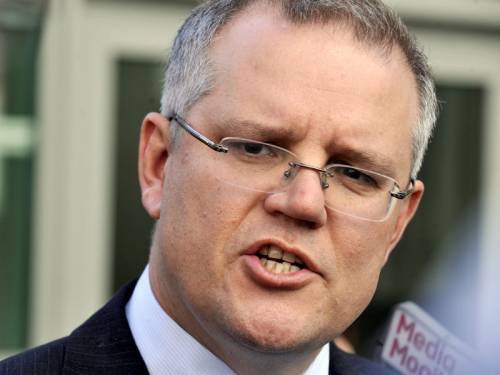
Scott Morrison. (AAP)
Source: AAP
Source: AAP
Opposition MP Scott Morrison's assertion that
asylum seekers should stay in offshore detention for five years came
from his discussions with refugees.
The opposition's suggestion that asylum seekers
should spend five years in detention came from immigration spokesman
Scott Morrison's discussions with refugees in Malaysia.
The government says asylum seekers sent to Nauru or Papua New Guinea
for processing would be treated according to a no-advantage principle to
ensure they didn't arrive in Australia sooner than if they had stayed
in refugee camps.
But it has not detailed how long asylum seekers could expect to be detained for.
On Friday, Mr Morrison said the government was being "mealy mouthed" in explaining what the no-advantage policy actually meant.
"If you come to Australia and you come by boat, you will go to Nauru
and you should expect to spend a long time there and that period of time
is around about five years," he said.
He said on Monday he had just been trying to clarify the government's policy.
"The five years originally came from my discussions with refugees and
asylum seekers living in Malaysia," he told ABC's Q&A program.
"These timeframes have been confirmed again to me most recently up in
Indonesia talking about what the processing time is in Indonesia which
from the UNHCR (is) about two to three years and Malaysia can be up to
three times that."
Labor minister Peter Garrett said the five-year timeframe was
"basically a figure that he (Mr Morrison) has come up with" and had been
presented in a way to give people the impression it was government
policy.
"How long it is that people will be detained will be a matter which
will have to be worked through pretty carefully," he told the Q&A
audience.
Mr Morrison was also quizzed on whether he had specifically discussed
with Indonesian Foreign Minister Marty Natalegawa the coalition's
policy of turning back asylum seeker boats.
"It's a private discussion which would follow, I think, textbook diplomacy," he said.
"I'm not about to risk that relationship ... that the government that
I would be part of would need to get this job done and to stop people
risking their lives."
No comments:
Post a Comment